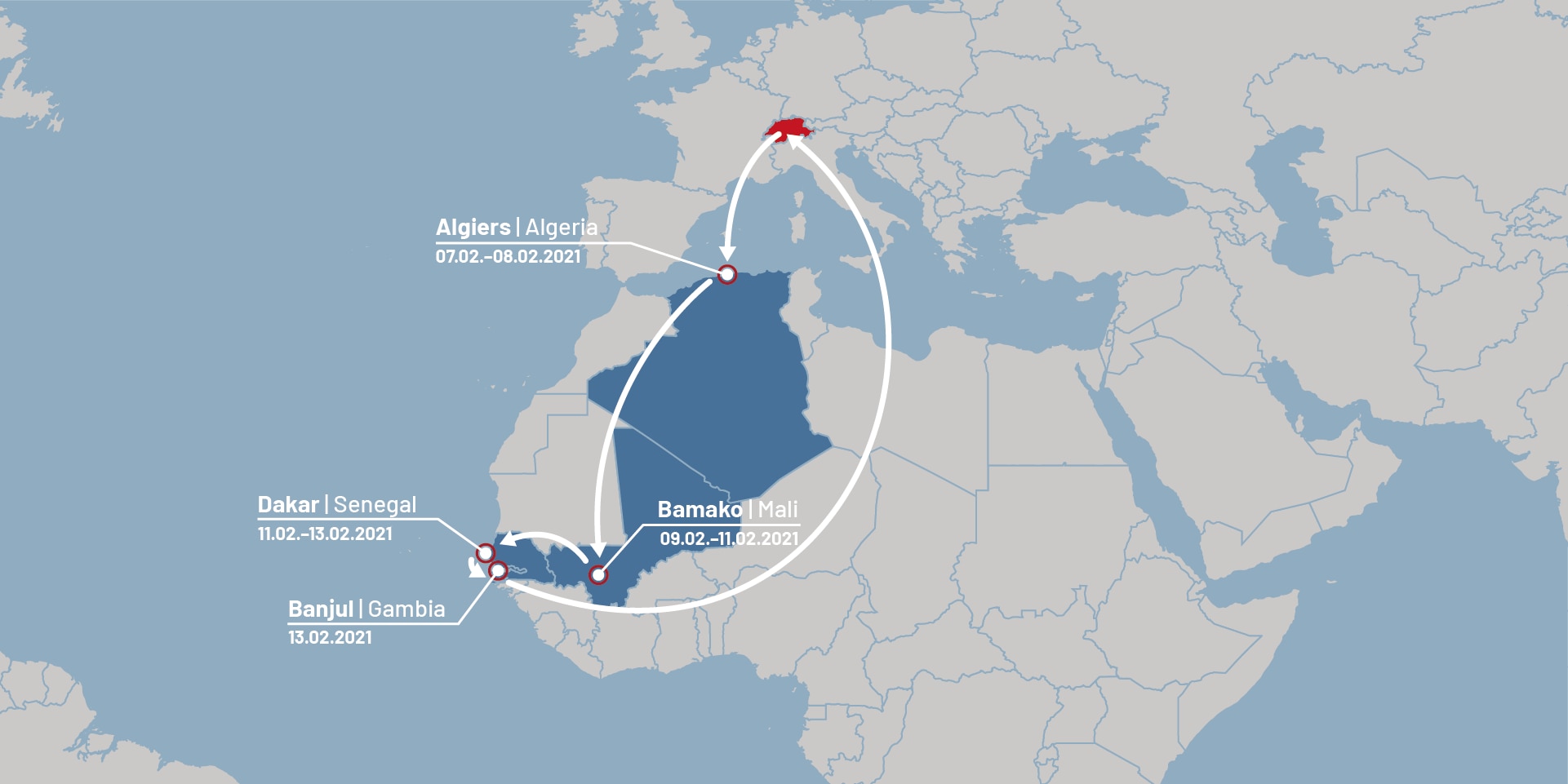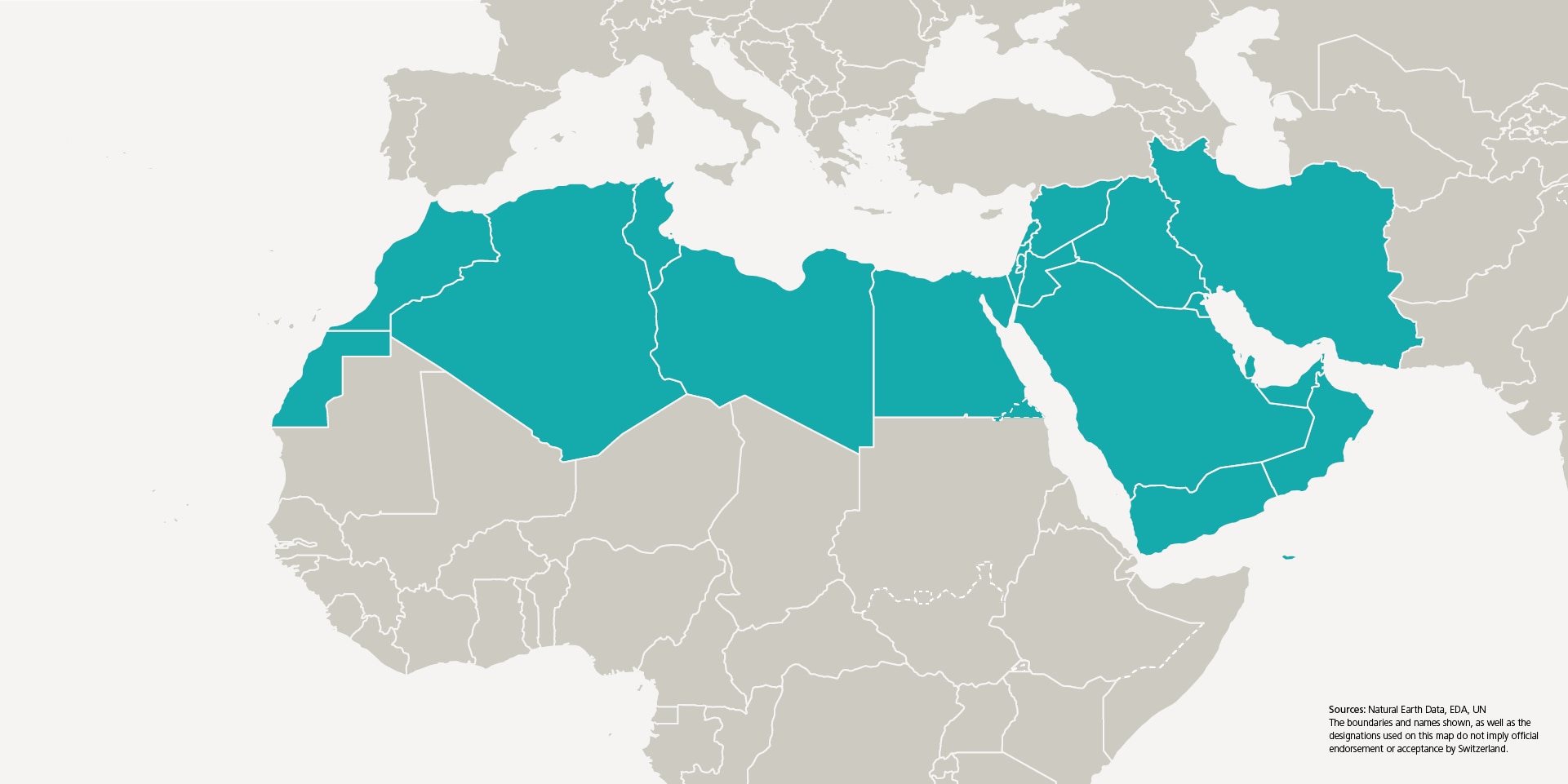Africa Day: "Africa as a whole is growing more important."
World Africa Day is celebrated every 25 May as the anniversary of the founding of the Organisation of African Unity, the forerunner of the African Union. On this occasion, the Federal Department of Foreign Affairs (FDFA) is sending a message of friendship to the people and governments of Africa and highlighting the importance of relations with this continent. This year, Switzerland has adopted new strategies focused on this region of the world. They aim to develop mutually beneficial relationships.
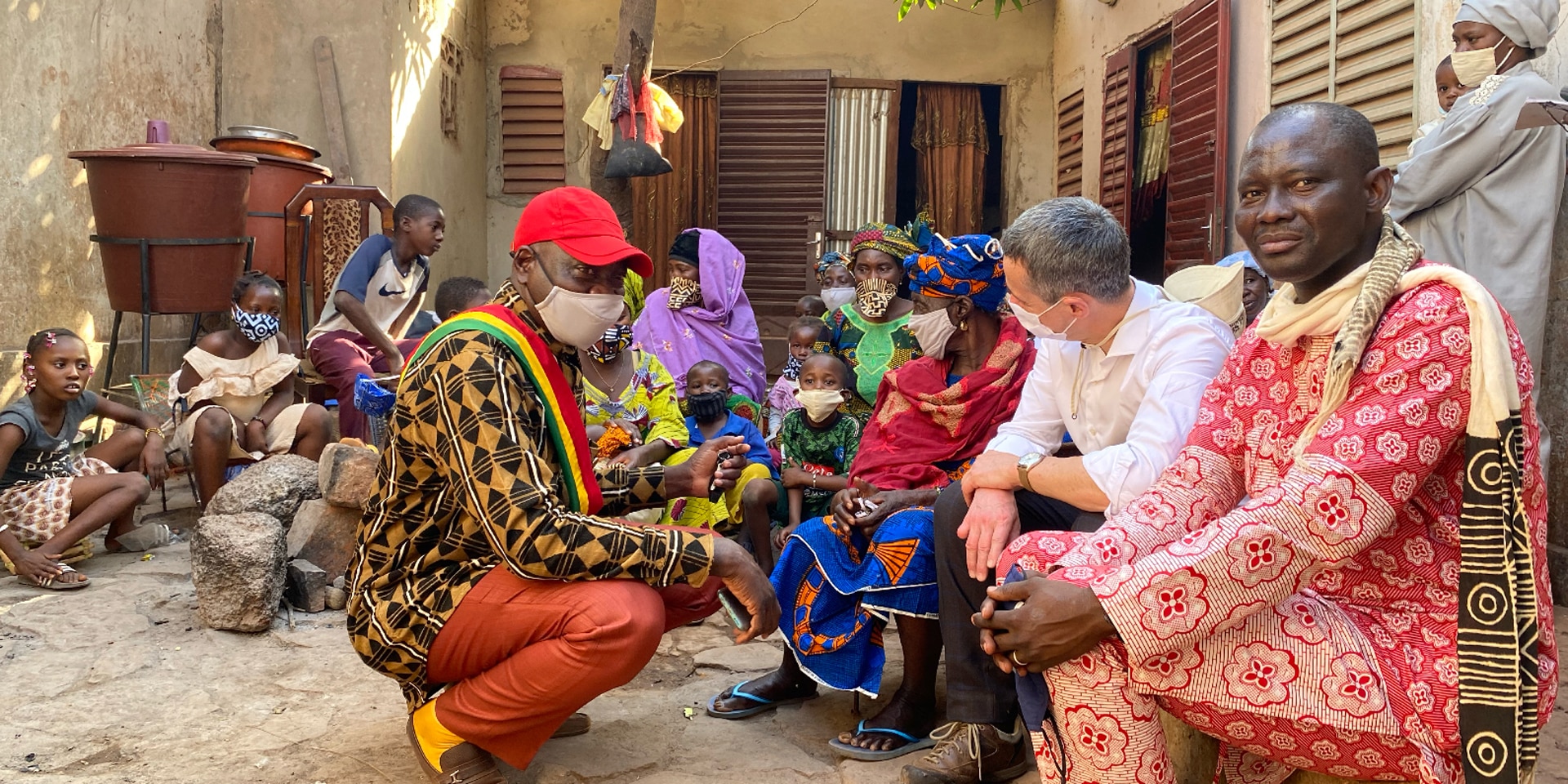
In February, Federal Councillor Ignazio Cassis went to Africa for a six-day trip, visiting Algeria, The Gambia, Mali and Senegal. © FDFA
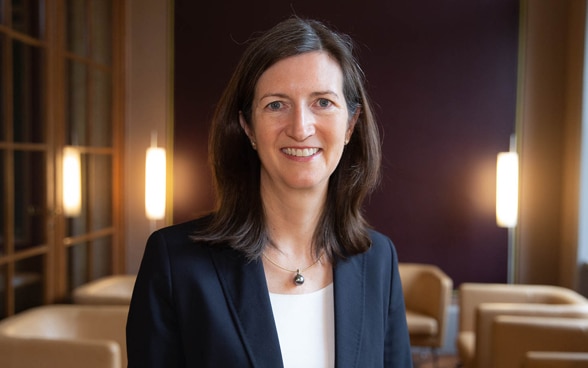
"Africa as a whole is growing more important in the global political and economic arena, including for Switzerland," stresses Ambassador Siri Walt, head of the FDFA's Africa Division.
Fifty-eight years after the founding of the Organisation of African Unity, the forerunner of the African Union, in which Switzerland has had observer status since 2006, the diplomat emphasises the potential of this region of the world as the world celebrates this World Africa Day. Switzerland wants to develop forward-looking relations based on mutual trust.
"Africa can celebrate the significant progress it has made in peacebuilding and development, and its new opportunities in the areas of trade, digitalisation, climate and migration partnerships," Walt adds.
Positive developments in Swiss-African relations
"Relations between Switzerland and the African continent have developed positively in recent years," notes Walt.
The year 2021 saw the launch of the Strategy for Sub-Saharan Africa 2021–24 and the Middle East and North Africa Strategy (MENA) 2021–24. The International Cooperation Strategy for the same period also focuses on these two regions.
At the beginning of the year, Federal Councillor Ignazio Cassis, head of the FDFA, visited four African countries: Algeria, The Gambia, Mali and Senegal. He also received his Burundian counterpart in Bern at the beginning of May. Some of these meetings led to the signing of sectoral agreements that strengthen bilateral relations with the continent.
In 2020, the Federal Council received the President of Ghana, Nana Addo Dankwa Akufo-Addo, for a state visit. This was the first visit to the Federal Council by a head of state from sub-Saharan Africa since 1956.
The ongoing COVID-19 pandemic is a global challenge that requires a collective response. The African Union is making an important contribution through its Africa Centres for Disease Control and Prevention (Africa CDC). Switzerland is collaborating with Africa CDC and, together with its partners, is committed to ensuring equitable access to vaccines, including their fair distribution. It translates this commitment into action through donations, financial support or technical assistance.
Africa, a continent of the future
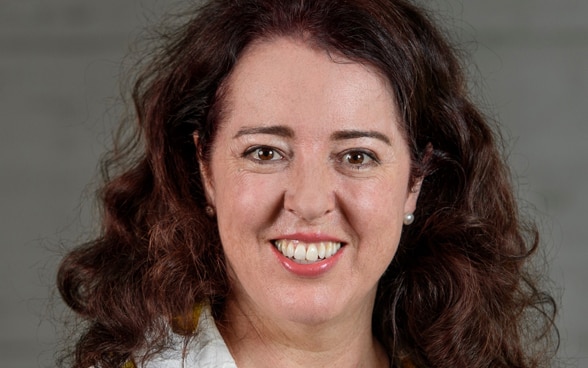
World Africa Day 2021 coincides with the FDFA's launch of strategies focused on the African continent.
The Strategy for Sub-Saharan Africa 2021–24, approved by the Federal Council at the beginning of the year, is intended to implement Switzerland's foreign policy strategy in countries south of the Sahara. Analogously, the core focus of the MENA Strategy 2021–24, adopted by the Federal Council in autumn 2020, is Switzerland's active engagement in North Africa. Maya Tissafi, head of the MENA Division, explains that "this strategy puts an emphasis on promoting projects that span the regions of North Africa and Sub-Saharan Africa. Examples here include migration and conflict prevention projects."
"For the first time, Switzerland is uniting its various sectoral policies within a coherent comprehensive vision in order to lay the foundations for extensive collaboration on an equal footing with its African partners," Cassis stated when this strategy was launched.
He explained: "The region is becoming increasingly important, including for Switzerland. It would be misguided to reduce Sub-Saharan Africa to its – albeit significant – challenges and to view it one-sidedly from a migration perspective. Above all, Africa is a place of new opportunities."
The African continent has much to offer, which is why Switzerland has gradually increased its presence. In a spirit of frank and constructive partnership, Switzerland wants to develop ties and build relationships benefiting both Africa and Switzerland. The strategy takes into account Africa's needs without neglecting Switzerland's interests. It also factors in their shared roots and values.
Why is 25 May World Africa Day?
World Africa Day is celebrated on 25 May, the day in 1963 on which the Organisation of African Unity – today's African Union – was founded. Almost all of the African continent's countries have joined the Union, bringing its number of member states to 55. As a continental diplomatic body, the organisation has a strong voice in the international community. It is widely recognised as a unifying political body and the states of Africa are actively involved in its activities. Switzerland has had observer status in the African Union since 2006.
Links
- Foreign Policy Strategy 2020–23, FDFA
- Geographical strategies of the FDFA: the Sub-Saharan Africa Strategy 2021–24
- Geographical strategies of the FDFA: the MENA Strategy 2021–24
- Thematic strategies of the FDFA: the International Cooperation Strategy
- Federal Councillor Ignazio Cassis receives Burundi's foreign minister in Bern, press release, FDFA, 3 May 2021
- Ignazio Cassis concludes his African tour in Senegal and The Gambia, press release, FDFA, 13 February 2021
- Official visit to Mali: Ignazio Cassis calls for transition to lasting peace, press release, FDFA, 11 February 2021
- Ignazio Cassis in Algeria: political meetings and economic exchange, press release, FDFA, 9 February 2021
- Ignazio Cassis to visit North and West Africa, press release, FDFA, 4 February 2021

